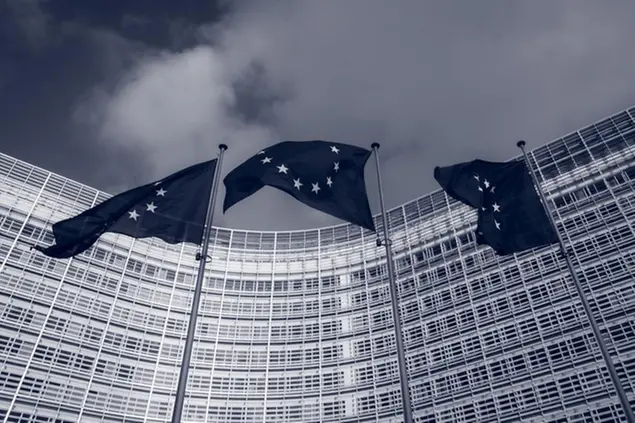This is the story of how the European Commission, with more than a little help from business lobbyists, sabotaged its own proposal for a progressive law to hold companies to account for abuses in their overseas supply chains. Such a law is long overdue to help avoid atrocities such as oil spills in the Niger delta, and the building collapse in Rana Plaza, Bangladesh which claimed over 1100 textile workers’ lives.
In February this year the Commission published its final proposal for the Corporate Sustainability Due Diligence (CSDD) directive. But environmental groups, consumer associations, human rights groups, and trade unions alike immediately cried foul when they saw the proposal in black and white. Contrary to positive initial signals, the final proposal contained no guarantee of liability in European courts; barriers for access to justice for victims would not be removed; directors’ duties had basically been dropped from the file; there were no enforceable climate obligations for companies; and the number of companies covered had been slashed.
So how, exactly, had the Commission’s original intentions been so watered-down?
It was always clear that industry lobbies would have a lot to say about a proposal to hold them accountable for wrong-doing in their overseas supply chains. Not all were opposed; many companies actually support a strong EU law, perhaps because they are painfully aware that a damaged reputation can lead to losses.
But some trade associations and individual companies were opposed to many elements on the table, and as the new report Inside Job makes clear, some industry voices pulled out all the stops to dilute and delay the proposal as much as possible.
The documents and the strategy
Hundreds of pages released under freedom of information rules reveal the strategies employed by corporate lobbies across the EU, including from Denmark, Sweden, France, and Germany. Particularly significant was the way in which the Danish Government worked closely with Danish business interests while the CSDD file was being prepared, with both targeting allies at the EU level to try to scupper elements of the file.
When Danish industry realised the depth of the ambition of the Commission in the shape of the lead department on the file, DG Justice, it decided to target an entirely different part of the Commission: the Regulatory Scrutiny Board (RSB).
You can be excused for never having heard of the RSB. It is a secretive body, acting behind closed doors, made-up of only a handful of appointed officials who have extraordinary powers to scrutinise legislation to see if it is ‘fit’ for purpose. The RSB is the embodiment of the Commission’s deregulation agenda and it is evidence that the Commission has fallen hook, line, and sinker for the arguments of big business. These seek to conflate rules and regulations with so-called ‘red tape’ and to rebrand regulations as ‘burdens’ on business which should be scrapped.
And the RSB has the power to reject new Commission proposals, with only the Commission’s highest body - the College of Commissioners - able to override its veto.
The RSB’s own rules say that it is not supposed to discuss individual files in meetings with lobbyists, but the evidence in Inside Job reveals a major loophole in those rules: they can be - and are - lobbied in writing.
Taking “good note” of industry concerns
Indeed, released documents indicate that the RSB took “good note” of industry concerns. Evidence in the report raises other concerns too. On paper the RSB is supposed to include economic, social, and environmental expertise, but almost all members only have economics or business administration backgrounds. And it seems to operate largely among like-minded organisations; more than 90 per cent of external meetings held by the RSB chairpersons have been with corporate interests or think tanks supportive of its work and mandate.
It’s not surprising, then, that the RSB rejected the Commission’s reports not once but twice. And these two rejections forced a major rethink of the proposal. Pro-industry voices within the Commission were brought in to help ‘steer’ the file, external lobbyists were given more ammunition and time to defeat the original proposals, and particular elements that some business groups had fought against were ultimately removed.
The RSB acted in accordance with its mandate, to put a spanner in the works of proposed legislation that might harm business competitiveness. Spare a thought for the environmental and human consequences of what is, quite frankly, an inside job.
Looking forward, the RSB and the deregulatory agenda that it represents needs a major overhaul. The Commission must drop its myopic view of regulation. Its focus is almost always to minimise so-called burdens on companies. But there are other concerns we need to take much more seriously.. Regulation needs to be reclaimed as a vital tool to achieve social, environmental, and equality objectives.
And the European Parliament and member states must urgently take steps to ensure that the CSDD proposal recovers its original ambition to hold business to account for abuses in its supply chain. European companies have been linked to human rights atrocities and environmental disasters across the globe for decades. These together with the climate emergency make this mission an urgent one.
Vicky Cann and Kenneth Haar are researchers at Corporate Europe Observatory. “Inside job: How business lobbyists used the Commission's scrutiny procedures to weaken human rights and environmental legislation” is published by Corporate Europe Observatory, Bund, and Friends of the Earth Europe.
© Riproduzione riservata


